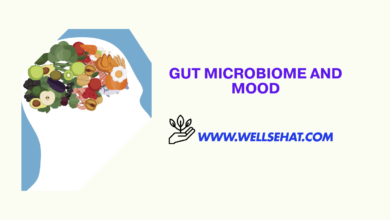The Power of Plant-Based Eating Benefits for Your Health and the Environment
Recently, plant-based eating has formed a movement, which refers to people’s diets in the present and the future. From celebrities to health experts, the message is clear: Consuming less animal-based diets and replacing them with plant-based foods could be dietarily valuable along with carrying several ecological advantages. You may be asking yourself, but what is eating plant-based, and why should I change my diet to plant-based? Now, it is time to get to the roots and figure out what it means to go plant-based and the benefits one can reap.
What is Plant-Based Eating?
Whole foods, especially plant foods that have been spared processing are the most preferred foods in plant-based diets. This means fresh fruits and vegetables, whole grain products, legumes, nuts, and seeds. Some embrace a plant-based diet as meaning no meat or dairy at all but can mean choosing more foods from the plant category while consuming limited animal products.
Health Benefits of Plant-Based Eating
Nutrient-Rich Choices
Veggie diets are rich in vitamins, minerals, fiber, and other protective antioxidants that are good for the body. Some of the foods are; Spinach is green and ranks in fiber and calories while oranges are colorful, delicious, and rich in fiber, and vitamins and low in calories. These foods have little fat or sugar, making it easier to keep your weight in check and minimize your odds of chronic diseases.
Lower Risk of Chronic Diseases
More studies have been done to establish a connection between the comparison of a plant-based diet and a number of a number of chronic diseases. This article reveals research evidence that associates intake of plant-based diets with lowered risks of heart diseases, hypertension, diabetes, and several types of cancer. Many plant foods that contain large amounts of fiber are useful in reducing cholesterol levels and so enhancing the quality of the heart.
Improved Digestive Health
The soluble fiber from fruits vegetables, legumes, and whole grains with regular intake is essential for optimal digestive health. Fiber helps the stomach produce frequent bowel movements thus preventing constipation and promoting helpful bacteria in our stomachs. Proper digestion also enhances nutrient assimilation and, therefore, general health.
Enhanced Mental Well-Being
Current literature implies that there is growing evidence that plant-based diets seem to also have further health benefits on the mental part of the human body. The diets whose benefits are linked to decreased levels of depression and anxiety include fruits, vegetables, and whole grains. The substances that are contained in plant foods, for example, flax seed and walnut are good for the brain and also help to stabilize mood.
Read More… The Power of Hydration Understanding the Importance of Water for Your Health
Weight Management
It therefore goes well for people who want to understand or lose kilograms adhering to a plant-focused diet. Many plant foods are lower in calorie density and high in fiber which has an excellent property of making you full and thus consume few calories. Switching to plant-based diets can actually make it easier to achieve and maintain a healthy weight.
Environmental Benefits of Plant-Based Eating
Reduced Carbon Footprint
By shifting to plant plant-based diet, humans can lessen their carbon footprint since there would be no greenhouse gas emissions, deforestation, or other related issues that cause the environment to become more harsh towards humans and animals.
Conservation of Resources
Raising animals requires a lot of resources such as water, land, and of course energy. In contrast, growing plants for the consumption of humans is more efficient. In this way, we will be contributing to nature by not using its resources without balance and check.
Biodiversity Protection
Plant-based diets open the door for various different kinds of food options and variety, this will help preserve biodiversity. By following diverse practices of farming, humans can contribute to a healthier ecosystem and also increase food security against different kinds of climate changes and challenges.





